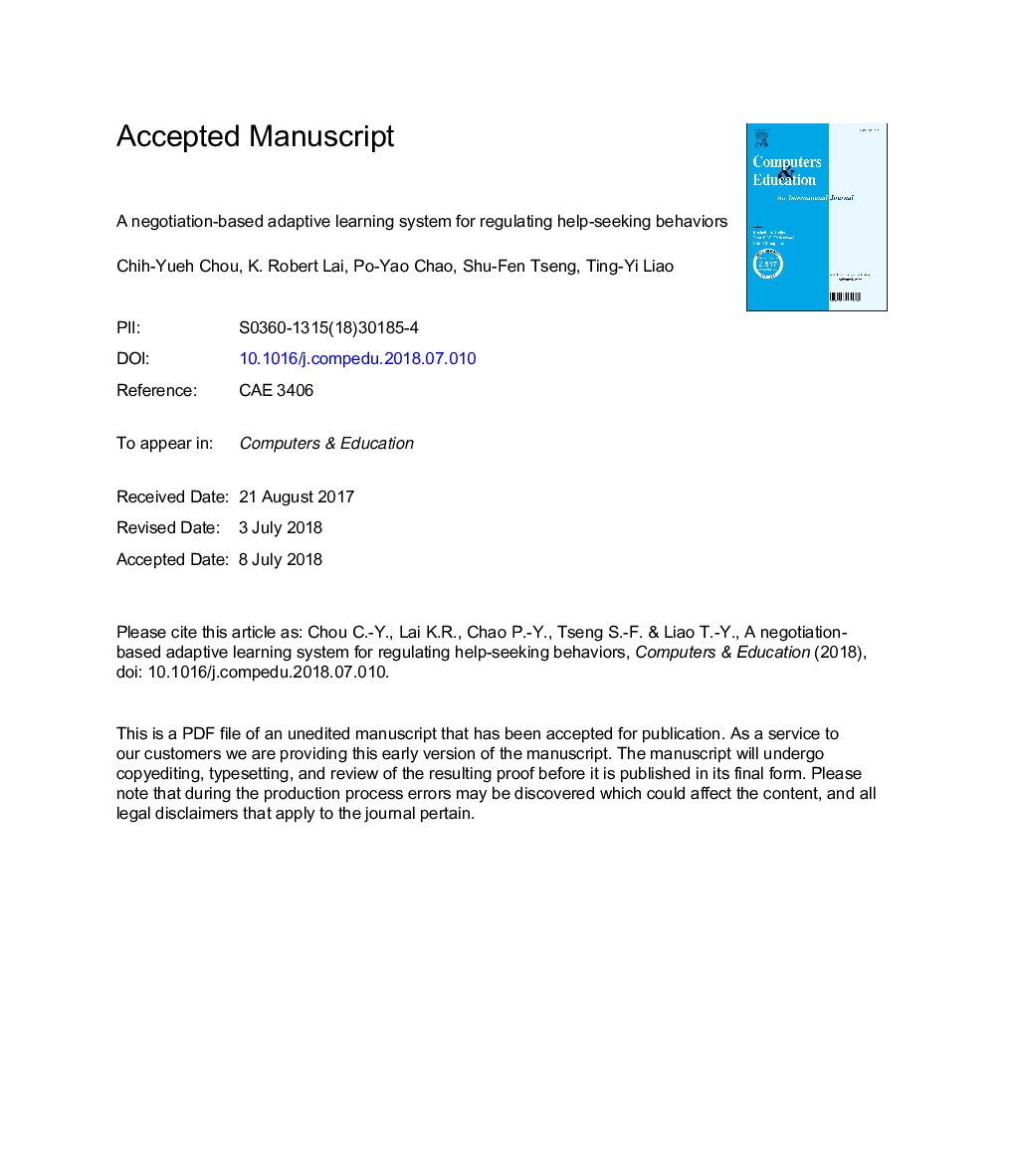| Article ID | Journal | Published Year | Pages | File Type |
|---|---|---|---|---|
| 6834546 | Computers & Education | 2018 | 39 Pages |
Abstract
Help-seeking is an important aspect of self-regulated learning (SRL), but students may have ineffective help-seeking behaviors. For example, some students are unaware of their need to seek help, and some often seek executive help merely to obtain the correct answer. This study proposes a negotiation-based adaptive learning system with a help-seeking negotiation mechanism to form the co-regulation of help-seeking between a student and the system. The system provides external feedback on SRL as scaffolding for help-seeking by prompting students to seek help or even actively offering help when they need it and reminding students not to seek too much help. An experiment was conducted with student participants divided into control and experimental groups. Students in the control group were allowed to seek help at will, whereas the help-seeking of students in the experimental group was regulated by the system. The results indicated that the students in the experimental group had better help-seeking behaviors (a higher ratio of steps solved by themselves and a lower ratio of steps solved with executive help) than the students in the control group.
Related Topics
Social Sciences and Humanities
Social Sciences
Education
Authors
Chih-Yueh Chou, K. Robert Lai, Po-Yao Chao, Shu-Fen Tseng, Ting-Yi Liao,
